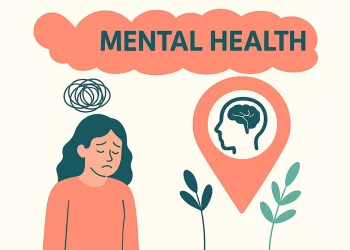Good oral health affects more than the appearance of your smile. It influences comfort, confidence, daily routines, and overall wellbeing. Many people only think about dental care when discomfort appears, but most issues develop slowly and can often be managed early with routine attention. This article explains general dental health concepts, the value of regular checkups, and practical habits that support long-term oral wellbeing. It also discusses what people can expect when visiting a dentist in Camarillo, or any other location, without making promotional or clinical claims.
The goal here is simple: offer clear and educational information that helps readers understand how oral health works and how to maintain it responsibly. This content is not medical advice and does not replace personalized guidance from a licensed professional.
Why Oral Health Matters
Oral health is connected to many daily functions. Chewing, speaking, swallowing, and even smiling rely on healthy teeth and gums. When any of these areas become uncomfortable, it often affects quality of life. While issues such as tooth sensitivity, plaque buildup, or gum swelling can seem minor at first, they may progress over time if left unaddressed.
Evidence-based dental guidance consistently emphasizes prevention. Regular cleanings, routine evaluations, and early assessments help monitor changes that may not be obvious at home. Licensed professionals use tools and techniques that allow them to detect concerns before they escalate, which is why scheduled visits remain a core part of responsible oral care.
Common Factors That Influence Oral Health
Different everyday habits influence the condition of teeth and gums. Understanding these factors helps people make informed choices.
1. Diet and Nutrition
Sugary snacks, frequent snacking, and acidic beverages are known to contribute to plaque formation. While no single food guarantees problems, patterns of high sugar or acid exposure may increase the risk of issues over time. Balanced meals, adequate water intake, and mindful snacking can support better oral harmony.
2.Daily Hygiene Routine
Brushing and flossing remain the foundation of oral maintenance. Using a soft-bristled brush, changing brushes regularly, and cleaning between teeth help reduce debris that contributes to buildup. Avoiding overly aggressive brushing is also important, since forceful habits can irritate gums.
3.Lifestyle Habits
Tobacco use, frequent alcohol consumption, mouth breathing, and stress-related habits like nighttime grinding can influence oral health. Monitoring such habits or discussing them with a healthcare provider helps plan appropriate preventive steps.
4.Natural Changes Over Time
Age-related changes, hormonal shifts, medication effects, and dry mouth can influence oral comfort and gum condition. These factors vary from person to person, and routine assessments help track them accurately.
Regular Dental Checkups: What They Typically Include
Although each clinic may have its own workflow, many routine checkups around the world follow a similar structure. This section describes general steps—not procedures from any specific clinic, and not intended as treatment guidance.
1. Oral Examination
A general assessment often includes checking the teeth, gums, tongue, and soft tissues. The goal is to observe overall condition, note any changes, and identify areas that may need attention.
2. Professional Cleaning
Cleanings help remove plaque and debris that home care cannot always reach. They are preventive steps rather than treatments for diseases.
3. X-ray Evaluation (When Recommended)
Licensed professionals may suggest imaging if needed to understand underlying structures or monitor specific areas. These decisions depend on individual factors.
4. Preventive Discussions
Professionals commonly talk about brushing habits, fluoride use, diet patterns, or concerns like sensitivity. These conversations help people make informed choices about daily care.
5. Long-Term Planning
If any condition requires monitoring, a licensed dentist may set follow-up timelines tailored to the individual’s needs.
These steps are general and may differ from one location to another. They are mentioned purely for educational purposes and do not represent clinical advice.
Visiting a Dentist in Camarillo: What People Usually Expect
People often wonder what a routine visit is like when they see a dentist in Camarillo or any other region. While specific experiences vary depending on the individual and the professional involved, most visits focus on comfort, education, and maintaining oral health.
Licensed dental professionals follow established standards that prioritize safety, accurate information, and patient-centered care. The broader goal is usually to help individuals understand their oral condition without offering guaranteed outcomes or promotional claims.
If you want to explore general dental care resources related to Camarillo, you can learn more here: https://camarillocosmeticdentistry.com/
This link is provided strictly as a reference source for readers who want to explore additional information. It is not an endorsement or promotional statement.
How Preventive Approaches Support Oral Wellbeing
Preventive dental care focuses on reducing the likelihood of problems before they develop. Here are key benefits widely acknowledged in public health education:
1. Early Awareness
Detecting concerns early allows individuals to make timely decisions. Early awareness does not guarantee outcomes but supports better planning.
2. Comfort and Function
Comfortable chewing and speaking depend on the stability of teeth and gums. Preventive steps help maintain daily functioning.
3. Long-Term Support
Many oral conditions develop slowly. Regular monitoring helps track changes and respond appropriately.
4. Better Understanding of Personal Habits
Professionals may explain how diet, cleaning patterns, or lifestyle choices influence oral health. These insights help people adjust routines if needed.
General Tips for Everyday Oral Care
These tips are drawn from widely accepted public health recommendations. They do not replace personalized guidance:
1. Brush Gently Twice a Day
Gentle brushing with a soft brush can help remove debris without irritating gums.
2. Clean Between Teeth
Flossing or using interdental tools supports gum health by reaching areas that brushes may miss.
3. Rinse After Sugary or Acidic Foods
Rinsing with water after snacks or acidic beverages helps reduce residue.
4. Stay Hydrated
Adequate water intake helps maintain moisture in the mouth and supports natural cleansing processes.
5. Be Mindful of Tobacco and Alcohol
Limiting these substances may support better oral comfort and long-term wellbeing.
6. Monitor Sensitivity
If sensitivity persists, speaking with a licensed dentist ensures proper evaluation.
7. Replace Toothbrushes Regularly
Most public health sources suggest replacement every few months or sooner if bristles wear down.
Understanding When to Seek Professional Support
Certain changes may indicate it’s time to schedule a visit with a licensed dentist. These include:
- Persistent discomfort
- Swelling or unusual gum changes
- Loose teeth in adults
- Ongoing sensitivity
- Changes in bite or chewing
- Sores that do not heal within normal timeframes
These signs do not necessarily mean a serious problem, but they warrant a professional evaluation for clarity. Only a licensed provider can perform an examination and offer relevant guidance.
Balancing Online Information With Professional Care
Online articles can be useful for learning, but they cannot evaluate your individual condition. Each person’s oral health is unique, influenced by genetics, habits, lifestyle, medical history, age, and daily routines. Reading general content is a starting point, not a substitute for professional diagnosis.
Whenever you notice changes or have concerns, the safest step is a direct consultation with a licensed healthcare provider.
Final Thoughts
Dental care is an important part of overall wellbeing. By understanding preventive habits, recognizing early signs, scheduling routine visits, and staying informed, individuals can support their oral health throughout life. Whether you visit a dentist in Camarillo or any other location, prioritizing regular checkups and responsible daily care makes a meaningful difference.
This article aims to empower readers with balanced, educational information while respecting global health-advertising laws, patient-safety norms, and content integrity standards.
Disclaimer
This article is intended for general informational and educational purposes only. It is not a substitute for professional medical advice, diagnosis, treatment, or personalized guidance from a licensed healthcare provider. The content should not be used to self-diagnose, self-treat, change medications, begin any treatment, delay professional care, or make decisions about procedures without consulting a qualified medical or dental professional.
If this article discusses medications, supplements, herbal remedies, or products:
This information does not verify, guarantee, or endorse the safety, effectiveness, dosage, or suitability of any medicine, supplement, or remedy. Always consult a licensed doctor or pharmacist before taking or combining any medication.
If this article discusses treatments, therapies, or clinical procedures:
Any procedures mentioned are included only for general awareness. They should not be interpreted as recommendations, promotions, or endorsements of any clinic, doctor, procedure, or service. Readers should independently verify credentials, risks, and suitability with a certified healthcare provider.
If any doctor, clinic, healthcare provider, brand, or city is mentioned:
Mentions are purely contextual and do not represent endorsement, recommendation, ranking, or evaluation of any individual, clinic, or service. No claims of cure, guaranteed results, superiority, testimonials, or unverifiable statements are made or implied in this article.
Backlinks / External Links Disclaimer:
Any external link provided in this article (including user-submitted website links) is shared solely for general informational reference. It is not recommended, endorsed, or promoted by WellHealthOrganic.com or the author. We do not guarantee the accuracy, safety, or reliability of external content, products, or services.
Accuracy & Responsibility Disclaimer:
While efforts are made to share reliable, publicly available information, WellHealthOrganic.com does not guarantee accuracy, completeness, or timeliness. Readers must verify facts independently and consult licensed professionals for any medical or dental concerns.
Image Disclaimer:
All images used in this article are illustrative references only. They do not represent real patients, clinics, treatments, or actual scenarios.
Author & Website Qualification Notice:
WellHealthOrganic.com and the author are not doctors, medical professionals, or licensed healthcare providers.
Liability Statement:
By reading or acting upon this article, you agree that all health-related decisions are your personal responsibility. WellHealthOrganic.com and the author will not be liable for any consequences, loss, harm, or damages arising from the use or misuse of this content. This article does not create a doctor–patient relationship of any kind.
Additional Notice
This article does not promote or endorse any dental clinic, practitioner, brand, or product mentioned directly or indirectly.
Emergency Warning (When applicable):
If you believe you may be experiencing a medical or dental emergency, contact a qualified healthcare provider or local emergency services immediately.



















